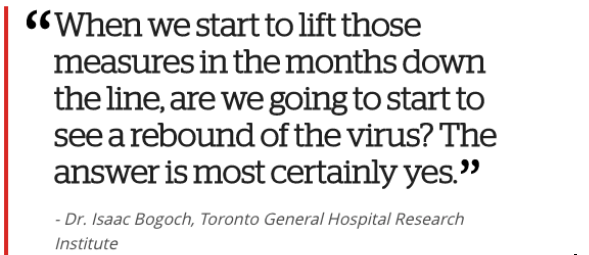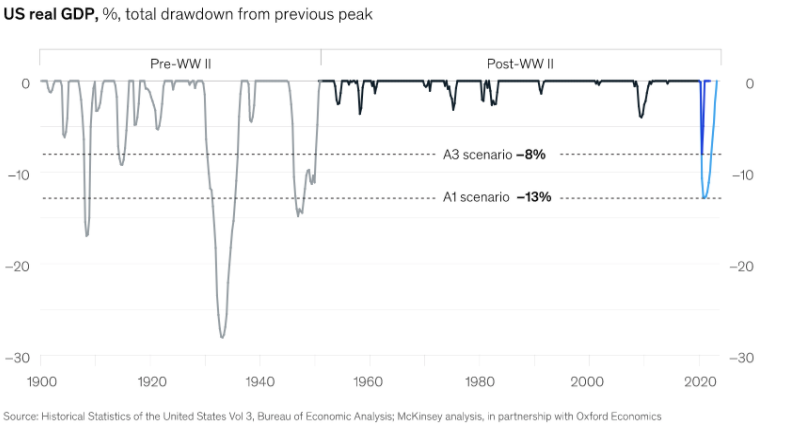In a few short weeks we’ve seen our everyday lives greatly impacted by a global event beyond the control of even the most powerful people on this planet. Our busy lives have quickly ground to a halt along with things we often take for granted – an evening with friends, your daily bus or train ride, that vacation you’ve been planning for months, and simply seeing family and friends. This crisis has already had and will continue to have a very real, varied, and tragic human impact.

While our immediate concerns should rightfully be on the health of ourselves and those we hold dear, many are left pondering what tomorrow will hold for an economy shaken to its core and the inevitable economic downturn that will result from a prolonged battle with the novel coronavirus. Our current situation sees many businesses shuttered and workers losing their jobs with the potential these jobs may never return. Rarely has there been this level of uncertainty.
Many comparisons are being drawn to the 1930’s, a time when people all over the world were dealing with unprecedented droughts, financial instability, and a world still struggling to fully rebuild from a crushing World War.

What is happening now may be the most abrupt shock to the global economy in modern history. With certainty we can predict that the way we conduct day-to-day business will be impacted in ways we can’t yet fully understand. Preserving our health and our livelihoods have become more critical than ever. Much like in the 30’s and throughout World War 2, we will need careful planning, resolve, and creative uses of technology to weather this storm. Just as our grandparents did, we will chart a course through this.
It is unavoidable that events of this scale will reshape how we conduct ourselves as individuals, citizens, and even nations. This is what Franklin D. Roosevelt proposed to a nation struggling to heal itself, a “New Deal”. Much as railroads first brought nations together, the highways, bridges, and infrastructure created under Roosevelt brought everyday people together closer than ever before.
We are seeing the dawn of a new reality – one where the public will be more open to the idea of a digital world. The internet is our railroad, our highways and bridges. We are already seeing more businesses than ever gravitating towards an online workforce. While this is out of necessity now, in the near future the lessons learned may be a boon to business. In the healthcare field, more doctors than ever are being afforded the ability to see patients digitally and even prescribe life saving medicines. Education is evaluating ways to deliver programs digitally utilizing virtual and augmented reality, digital classrooms, and other technologies. We are beginning to see the next evolution of the digital society, with an economy that leverages digital communication, automation, machine intelligence, and other technologies to become more accessible and more resilient than ever before.
The aftermath of the pandemic will provide an opportunity to learn from a plethora of social innovations and experiments, ranging from working from home to large-scale surveillance. With this will come an understanding of which innovations, if adopted permanently, might provide substantial uplift to economic and social welfare—and which would ultimately inhibit the broader betterment of society.
In order to chart a path through this new reality, we will need to adapt. Governments and businesses will need to continue to embrace the lessons we are learning. Rapid development in healthcare is essential, many healthcare systems have changed little since their creation post-World War 2. Many governments themselves still conduct business more or less the same since their inceptions. Many businesses have been slow to adopt the remote workforce and digital consumer base.
In the coming days, weeks, and months we will be exploring tools and services to help business and government adapt and be resilient. We’ll also take deep dives into success stories coming out of this unprecedented shift in societal and consumer behaviours. We wholeheartedly believe that remote work and collaboration can change society in many positive ways, combating many of the problems we will face as a people. We believe the digital economy is a good thing that empowers everyone to make better choices and be served more efficiently. We believe that greater access to information will be a shift in the right direction so more people can take charge of their medical care and provide everyone with better governance.
Stay safe everyone, we will get through this.

